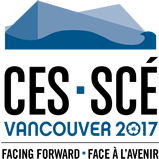The American Evaluation Association Conference in 2016 was big. Atlanta was my second AEA conference and with 50 concurrent sessions, I was never going to get to half of the presentations I wanted to see. At my first conference in 2015 I was excited to see the famous people whose articles I had been reading as a student and I was drawn to sessions by Tom Schwandt, Michael Quinn Patton, Beverley Parsons, Michael Scriven and George Grob. This time I decided to prioritize sessions related to my research and I ended up joining the Advocacy and Policy-Change Topical Interest group. It was great to meet people exploring similar questions and sharing their understandings from interdisciplinary theory and practical experience.
I was excited by the plenary sessions and the question of how thoughtful design might shape the profession of evaluation. John Gargani reminded us in the opening address about how evaluation brings the mind and heart together in determining worth. I found the idea that evaluation could (and should) contribute to building a world that we all want to live in to be both ambitious and captivating. I especially enjoyed a session by the “original designers” that highlighted the consistent challenges of working toward this vision in a field where providing information that clients want to hear can be so highly rewarded.
The CES conference in Vancouver has a theme that, like the AEA design theme, invites reflection on the future of evaluation. I am looking forward to seeing how we will be “Facing Forward” together and using learning from the past to guide innovation and thoughtful use of our rapidly expanding technological capability. I I expect that in Vancouver the schedule will still force me to choose between fabulous sessions that run concurrently but I am looking forward to a slightly smaller conference and catching up with some of the Canadians and others that I met for the first time in Atlanta.
BIO
Graham Shaw is a PhD Candidate in the School of Population and Public Health. His research is investigating ways that evidence from research and evaluation can be used strategically and ethically to influence policy-development and applied policy learning. He is happy to be studying and working part time on evaluation projects in BC and developing his skills in mixed-methods research and evaluation.
